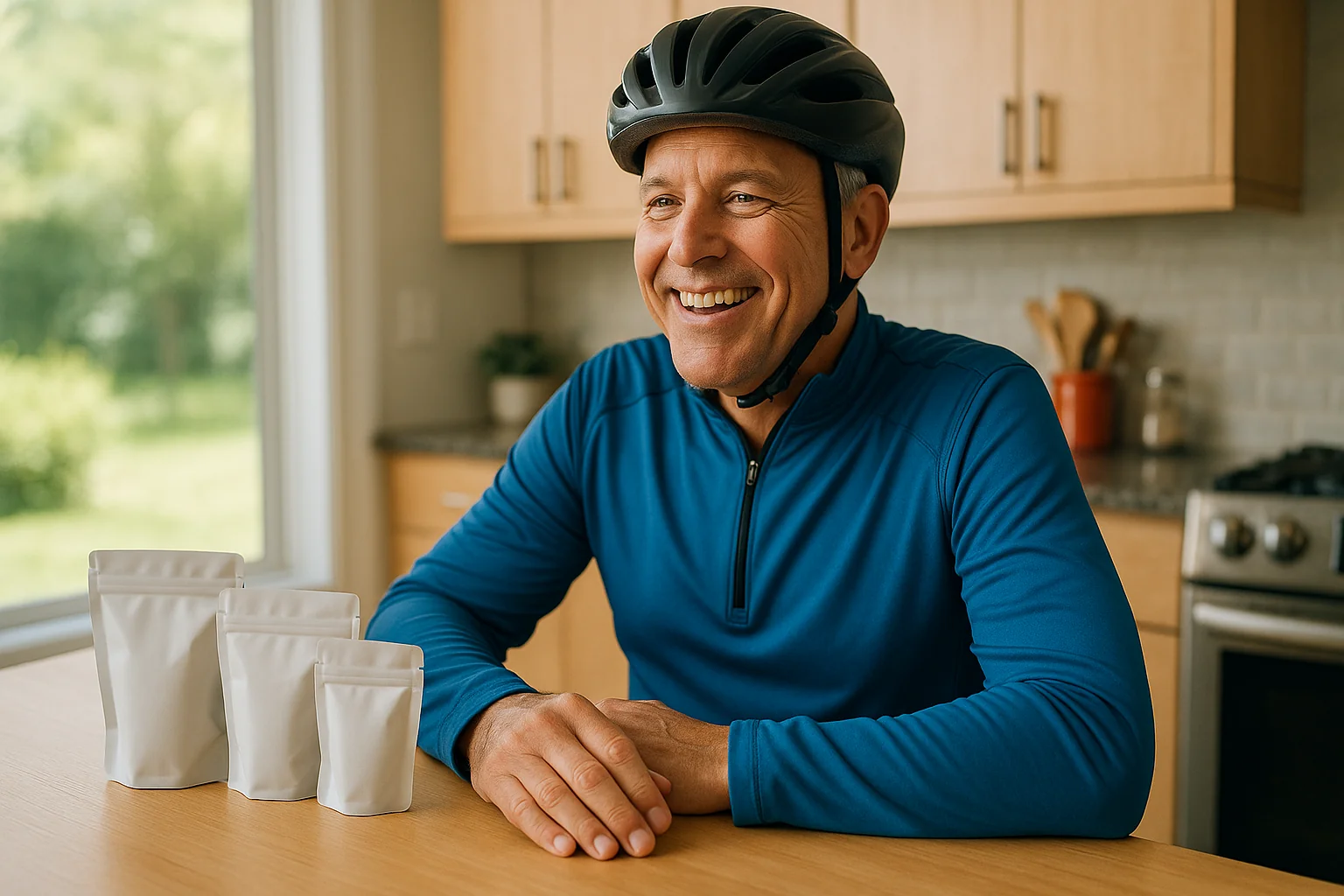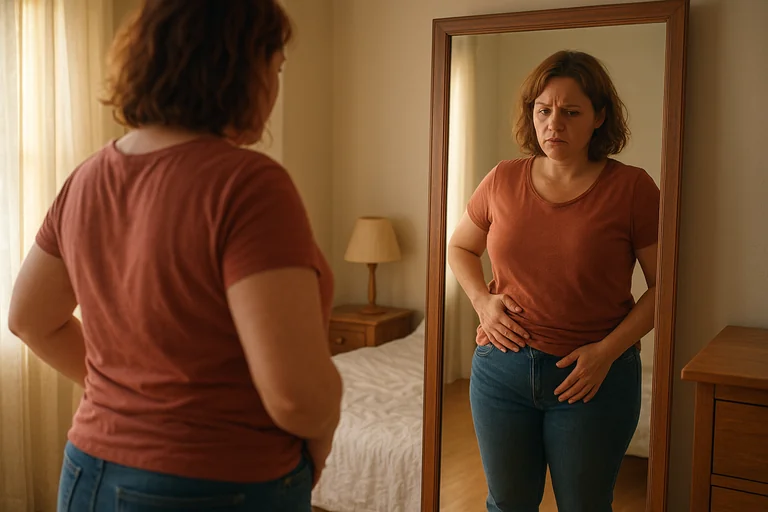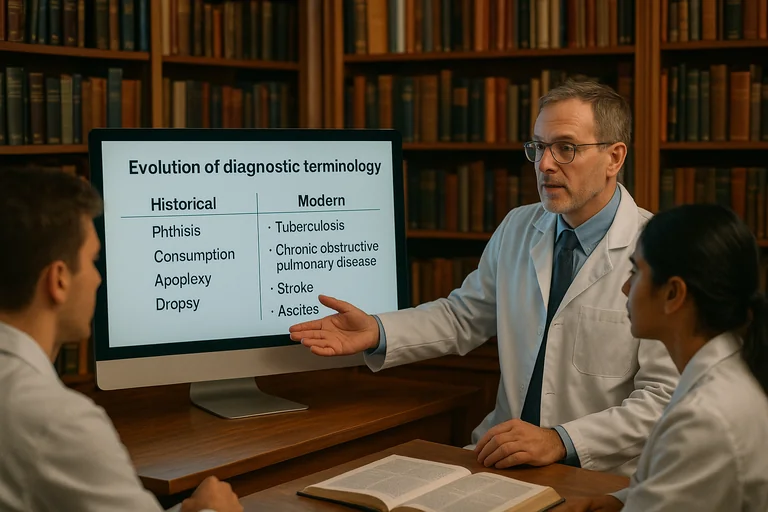A 2 minute assessment to get a personalized mental health or alcohol recovery plan.
No supplement is FDA-approved to treat alcohol use disorder - FDA-approved medications like naltrexone are the proven first line, but supplements can play a supporting role.
What You'll Discover:
- Why naltrexone is the evidence-based first-line for reducing cravings
- Which supplements have research backing them (NAC, kudzu, vitamins)
- The difference between craving-targeting and recovery-supporting supplements
- Why thiamine is non-negotiable for anyone with significant alcohol use
- Red flags to avoid in supplement marketing
- How to use supplements wisely alongside real treatment
The first thing to know is this: if you're searching for a supplement to "switch off" alcohol cravings, no supplement is FDA-approved to treat alcohol use disorder (AUD), and most pills marketed for "cravings" don't have strong human data behind them.
All that said, FDA-approved medications - especially naltrexone - are the proven first line. Supplements can still play a supporting role (think: fixing nutrient gaps, protecting your liver, easing stress), but they shouldn't delay you from starting treatments that actually move the needle.
Why This Matters
AUD is common, but treatment is rare. In the U.S., 29.5 million people met criteria for AUD recently, yet medication treatment is used by only a tiny fraction. That leaves a lot of people turning to "natural" products - some helpful, many not.
Marketing can mislead. In 2024, the FTC issued refunds after finding a popular "anti-craving" supplement used misleading claims and fake "proof." That's not a one-off - it's a pattern in this space.
Guidelines are crystal clear. The American Psychiatric Association and the American Society of Addiction Medicine recommend FDA-approved medications first, not supplements.
First Things First: What Actually Reduces Heavy Drinking
Naltrexone (50 mg oral daily) sits at the top of the evidence pyramid. It reduces the "reward" from alcohol so it's easier to stop at 1-2 drinks instead of 4-6.
A 2023 umbrella review/meta-analysis of 118 clinical trials (20,976 people) found naltrexone improves alcohol outcomes. Naltrexone's benefit for reducing heavy-drinking days is clinically meaningful with NNT around 10-12 (i.e., treat 10-12 people to help one person avoid heavy drinking who otherwise wouldn't).
Takeaway: If cravings are your biggest problem, medication is where you'll get the most reliable "return on effort."
The Supplement Landscape - Clear, Simple, and Honest
How to Read This Section
- Craving-targeting: has some evidence to blunt the urge to drink
- Recovery-supporting: helps your body/brain recover (nutrients, liver, inflammation) but doesn't directly reduce cravings
- Verdict: "Use as adjunct," "Interesting but early," or "Not recommended for cravings"
1) N-Acetylcysteine (NAC) - Craving-Targeting, But Mixed Results
Mechanism (simple): Supports brain glutamate balance and antioxidant defenses that can get out of whack with chronic drinking.
What the research says:
Small early studies looked promising. The largest trial (182 people) added 2,400 mg/day NAC to weekly CBT and found no benefit over placebo on cravings, drinking, or PTSD symptoms.
A 2024 meta-analysis (11 RCTs) found a small effect favoring NAC for cravings, but the studies were tiny and inconsistent (high heterogeneity) and the overall certainty of evidence was low - we don't have enough participants yet to be confident.
Verdict: Interesting but early. If you try it, think of it as an adjunct (not a replacement), and loop in your clinician - especially if you're on blood thinners.
2) Kudzu (Pueraria lobata) - Acute Drinking Reduction in Labs; Thin Clinical Data
Mechanism (simple): Certain isoflavones may tweak alcohol metabolism and "satiation" signals, slowing how fast you keep drinking.
What we see: Small lab studies show people sometimes drink fewer beers in short sessions. Longer trials are few and mixed. Some non-seeking heavy drinkers reduced intake for a few weeks, but a four-month study in veterans saw no clear benefit.
Verdict: Interesting but early. Not a reliable craving-stopper in real-world, long-term use.
3) L-Glutamine - Great Theory, Almost No Direct AUD Data
Mechanism (simple): Precursor in the glutamate-GABA cycle; also supports gut lining and blood sugar stability - both matter during recovery.
Evidence: Clinical trials for AUD are minimal and confounded (used in combos where we can't tell if glutamine did anything).
Verdict: Recovery-supporting (gut/energy), not proven for craving relief.
4) Vitamins and Minerals - Recovery-Supporting Powerhouses
Thiamine (Vitamin B1): The non-negotiable for anyone with significant alcohol use. It protects your brain from Wernicke-Korsakoff (a preventable, sometimes permanent brain injury). It doesn't reduce cravings, but it prevents catastrophe.
Ask your clinician about the right dose/route (oral vs. IV/IM) based on your risk and symptoms.
Vitamin B6 (pyridoxine): Common deficiency; supports GABA and monoamine synthesis. It can ease anxiety for some people, which indirectly helps cravings feel less urgent.
Magnesium: Deficiency is common with heavy drinking and it helps activate thiamine. Fixing a deficiency is smart; but large trials don't show magnesium supplements meaningfully reduce withdrawal or cravings unless you're deficient.
Zinc: Frequently low in heavy drinkers; supports liver and immune function. Helpful for recovery, not a craving-blocker.
Verdict: Absolutely use to correct deficiencies (especially thiamine). They won't "turn off" cravings, but they protect your brain and body so recovery is safer and easier.
5) Liver Support (Milk Thistle / Silymarin) - Recovery-Supporting; Not a Craving Tool
Mechanism (simple): Antioxidant, anti-inflammatory, and anti-fibrotic actions in the liver.
Evidence: Mixed but reasonable for liver metrics over months; no evidence it reduces cravings or changes drinking behavior.
Verdict: Valuable for liver health in recovery; not an anti-craving supplement.
6) Omega-3s (EPA/DHA) - Brain and Stress Support; Cravings Unchanged
Mechanism (simple): Anti-inflammatory, membrane/brain support (DHA), may blunt stress physiology in early recovery.
Evidence: One RCT showed fewer drinking days during treatment, but no difference in relapse at six months and no direct effect on cravings.
Verdict: Recovery-supporting for brain and mood; doesn't directly reduce craving.
7) Probiotics - Promising Gut-Brain Support; Early Days for Cravings
Mechanism (simple): Alcohol disrupts the microbiome and gut barrier; re-balancing can lower inflammation and may influence brain reward pathways via the gut-brain axis.
Evidence: Growing but still early. Some small human studies and stronger animal data suggest lower intake and less stress with certain strains.
Verdict: Promising adjunct for overall recovery; not yet a stand-alone craving fix.
8) St. John's Wort - High Interaction Risk: Generally Avoid
Why: Can dangerously interact with antidepressants (risk of serotonin syndrome), birth control, HIV meds, transplant meds, anticoagulants, and many more.
Verdict: Not recommended in AUD care without specialist oversight.
Bottom Line Grid (Quick Visual)
Medication (first-line): Naltrexone - Strong craving effect (especially for heavy drinking), indirect recovery support. Start here.
Amino/antioxidant: NAC - Mixed/Small craving effect with low-certainty, antioxidant recovery support. Adjunct only.
Herbal "craving": Kudzu - Some lab signal for cravings, thin long-term data, minimal recovery support. Interesting, early.
Vitamins (deficiency): Thiamine, B6 - No direct craving effect, high brain safety/nerves recovery support. Use to correct gaps.
Minerals: Magnesium, Zinc - No direct craving effect, thiamine activation/liver/immune recovery support. Fix deficiency.
Liver support: Milk thistle - No craving effect, moderate liver metrics recovery support. Adjunct for liver.
Brain lipids: Omega-3 (EPA/DHA) - No craving effect shown, moderate brain/stress recovery support. Adjunct for brain.
Microbiome: Probiotics - Early promise for cravings, moderate gut-brain recovery support. Adjunct, strain-specific.
High-risk herb: St. John's Wort - N/A craving effect, N/A recovery support. Avoid (interactions).
How to Use Supplements Wisely (If You Choose To)
1) Don't Delay Real Treatment
Medications plus support give you the best odds. Evidence: JAMA meta-analysis on naltrexone. Guidance: APA Guideline.
2) Fix the Must-Do Basics First
- Thiamine (B1) if you drink heavily or recently stopped - talk to a clinician about dose/route
- General B-complex and magnesium if deficient
- Omega-3s (2-3 g EPA+DHA/day) for brain support, if appropriate
- Liver labs plus plan if you've been drinking heavily; discuss milk thistle as a long-term adjunct
3) If You Try a "Craving-Targeting" Supplement (e.g., NAC)
- Treat it as optional and adjunctive
- Start one at a time, and log dose, timing, effects, and side effects
- Share your list with your clinician/pharmacist (interactions matter)
4) Buy Only From Reputable Brands
Look for USP, NSF, or ConsumerLab certifications, standardized extracts, lot numbers, and transparent labels. Avoid "proprietary blends," "FDA-approved" claims (supplements are not FDA-approved), and miracle-cure language.
5) Watch for Interactions
Especially with antidepressants, anticoagulants, diabetes meds, HIV meds, transplant meds, and any opioids (if you're considering naltrexone, opioids will be blocked).
What to Expect If You Combine Medication Plus Smart Supplements
Think of the plan in layers:
Layer 1: Control cravings and heavy drinking - Start naltrexone if your goal is to cut down. Evidence: JAMA review
Layer 2: Protect brain and body - Correct thiamine and other vitamin/mineral deficiencies; consider omega-3s; support liver if needed
Layer 3: Optional adjuncts - Trial NAC or microbiome-targeted approaches only as add-ons, and only if you're already on a real treatment path
Layer 4: Skills and support - Coaching/therapy to solve the daily triggers (sleep, stress, social plans, routines). This is where changes stick
Red Flags to Avoid
- "Eliminates cravings" or "clinically proven" with no trial details
- "FDA-approved supplement" (doesn't exist)
- Fake review sites naming a "#1 anti-craving" product
- Products that stack 10+ actives in a "proprietary blend" (you can't tell doses or safety)
- Delaying medication/therapy while spending months testing powders and gummies
Real-world cautionary tale: the FTC's case against Sobrenix details fake endorsements, deceptive TV segments, and fabricated "Harvard" claims, leading to large penalties and consumer refunds.
Simple Starter Plan (Copy-and-Use Checklist)
This Week
- Book a quick telehealth consult about naltrexone
- Start thiamine and a B-complex under clinician guidance; add magnesium if labs or diet say you're low
- Add omega-3s (EPA+DHA) if no contraindications
- If you still want to test a craving adjunct, start NAC (only after discussing meds and interactions). Track results for 2-4 weeks
Night-of Strategies
- Eat before drinking; hydrate; set a 2-3-drink cap; pace with water/seltzer; plan your ride home before you start
Ongoing
- Weekly check-ins (minutes) to reflect on what worked, update your plan, and stay accountable
A Gentle Next Step That Actually Helps
If cravings are making life harder than it needs to be, the fastest, most reliable relief comes from evidence-based medication - and you can still keep any helpful supplements as backup singers, not the lead vocalist.
So, what should you do first? Take our short, no-pressure assessment to see whether naltrexone is a fit (and how it would look for you). You'll get clear next steps and options, all online.




